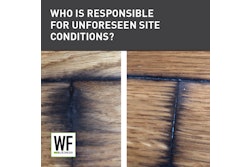
Studies show the construction industry has one of the highest percentages of alcohol- and drug-using employees. However, properly administering drug tests in the industry can be difficult due to a complex web of local, state and federal laws. While drug testing is an important safety measure for a worksite, a poorly designed policy can also lead to a disability discrimination claim. Make sure you are aware of some of the challenges you face in avoiding lawsuits while also maintaining a drug-free workplace.
Understand federal, state & local laws
When creating drug testing policies for employees, you need to be aware of state, local, and, in some cases, federal laws. Here are some things to know:
Federal law regulates drug testing for companies that contract with the federal government under the Drug-Free Workplace Act of 1988, as well as employees who are covered by the Department of Transportation regulations, such as drivers carrying hazardous cargo. These regulations are complicated, and employers contracting with the federal government are advised to seek the help of experienced legal counsel to properly implement federal drug testing protocol.
State laws governing drug testing vary from state to state; there is no one standard that can be applied uniformly. Our state, Minnesota, provides one particularly challenging example of a drug testing law. Among other things, it requires that all drug testing be done pursuant to a written policy. Employers may test job applicants, but only if the same test is required for all job applicants in that position. Employees can be forced to undergo a drug test as part of a physical examination, but only if they are given a two-week notice that a drug or alcohol test may be required as part of the examination. Random testing is possible for safety-sensitive positions, if an employee has sustained an injury or was otherwise involved in a work-related accident. The laws in many other states are similar to Minnesota’s, but there are also important differences. Some states offer a shield from civil liability for employment decisions based on a properly conducted drug test.
In addition to varied state laws, local governments may also implement drug testing policies. For example, Boulder, Colo., prohibits random or periodic testing unless the employer has “individualized reasonable suspicion” based on observable facts that an employee is under the influence. Pre-employment tests must be stated on the employment application or in advertisements for an opening. As the above examples show, an employer who wishes to implement a drug testing policy should carefully review state and local regulations with the assistance of an attorney to ensure its efforts to create a drug-free workplace do not give rise to liability.
Drug dependency as a disability
Alcoholism and drug dependency are recognized disabilities under the Americans with Disabilities Act (ADA). The ADA doesn’t cover employees who are “currently engaging” in illegal drug use, nor does it protect individuals whose alcohol use is affecting their job performance. But unlike illegal drugs, employees can use alcohol when off-work and still be protected by the ADA, as long as their alcohol use doesn’t affect their job performance. For this reason, employers should implement drug testing policies that protect the business interests of the employer, as opposed to targeting employees based on a recognized disability. Preparing that kind of policy requires careful drafting and a keen understanding of the law.
The legalization of marijuana as a medicinal treatment is an additional ball to juggle in this process. Marijuana lasts longer in the body than alcohol or any other commonly used illicit drugs, which means users of medical marijuana may test positive even if they are not currently “high.” Several employees have sued their employers claiming the employer violated the ADA by firing, or refusing to hire, the employee after the employee tested positive for marijuana.
As marijuana gains acceptance in society, courts will likely begin requiring employers to make a reasonable accommodation for prescribed medical marijuana. Employers in states with medicinal marijuana should work with their attorney to develop a drug testing policy that anticipates that an employee’s use of medical marijuana may be protected by the ADA.
‘Independent contractors’ versus ‘employees’
Companies may include drug testing in the terms of their independent contractor agreements, in which case most state or local laws regarding drug testing wouldn’t apply. Of course, the boundary between “employees” and “contractors” is not always clear-cut. For instance, a classification complication may arise if a company contracting for labor conducts drug tests on its independently contracted workers, because behavior control is one of the factors the IRS considers when making the “employee versus independent contractor” determination.
Drug testing is probably not enough by itself to change a contractor-subcontractor relationship into an employer-employee relationship, but companies that conduct their own drug testing risk increasing the chance that the IRS determines their independent contractors are actually employees.
To avoid this risk, companies may want to include drug-free language in their contracts (such as requiring that subcontractors who work for them are not under the influence of alcohol or drugs while on a worksite), but are advised against conducting their own drug tests on subcontractors.
It’s understandable why construction industry employers might want to develop a testing policy to help maintain an alcohol- and drug-free workplace. But it’s critical to be aware that implementing these policies also opens the door to potential disability discrimination claims under the ADA, as well as other state disability laws. They likewise increase the chance that the IRS will find that employees were misclassified as independent contractors, which can lead to more legal headaches. A business looking to establish a drug testing policy should reach out to an experienced employment law attorney licensed in its state to ensure its policies increase safety on the job site without increasing civil liability in the courtroom.
































